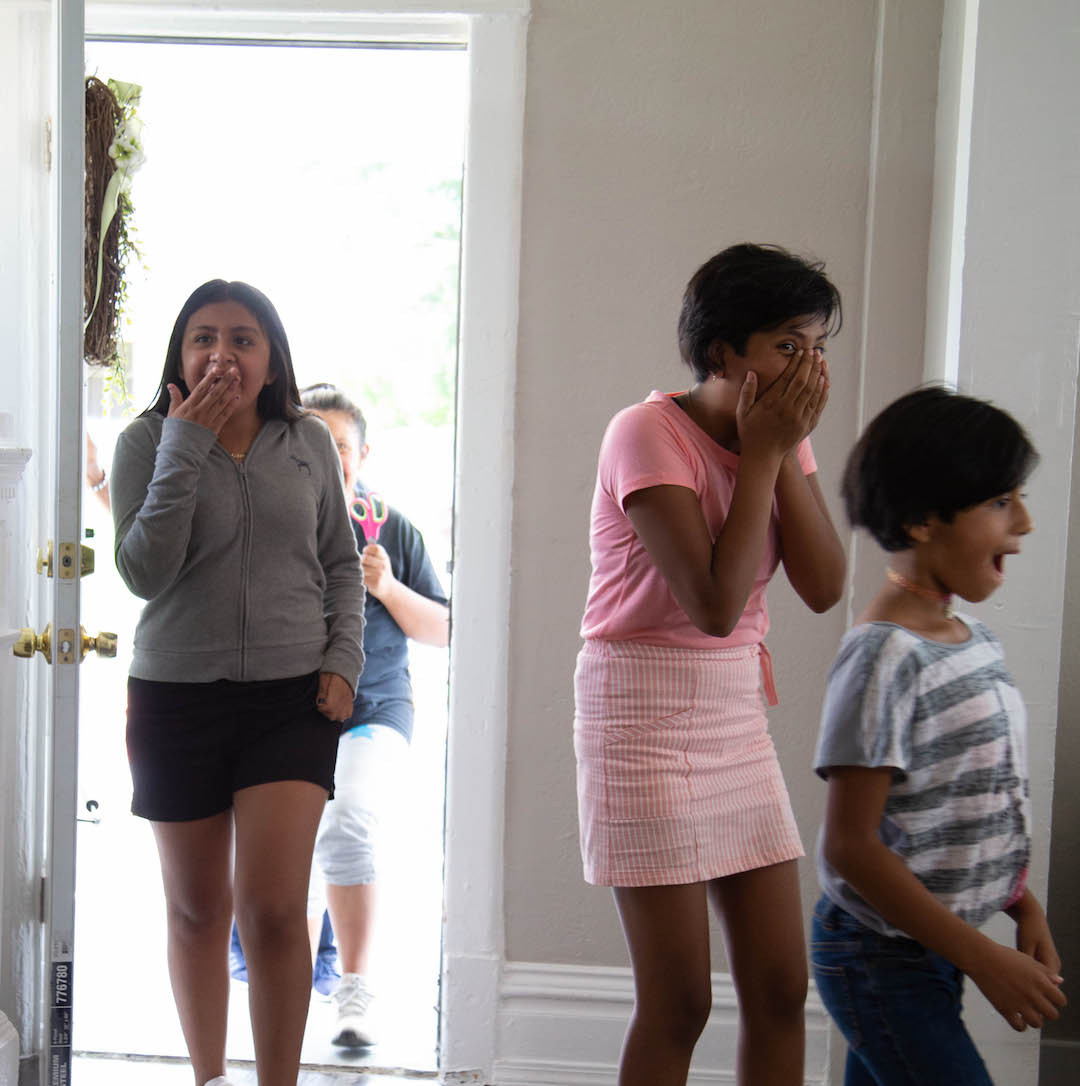GO Haiti Pathways Update
Pathways is a life-skills-based learning program for students 18 years or older that have “aged out” of one of GO Project’s partner church communities in Haiti. Pathways was developed as an initiative to assist the most educationally-disadvantaged students in GO Project’s partner network. Universities and trade/professional schools already exist within Haiti; however, admissions requirements will put these options out of reach for many children in GO Project’s partner’s care.
Children in fulltime orphan care often come from extremely difficult circumstances. It is not uncommon for a child to have received little or no formal education before coming under the care of the local church. While some children may go on to attend university or pursue other educational options within Haiti, Pathways is designed for those students whose lack of education have left them with few, if any, options.
In September 2013, 21 students formed the first Pathways class, hosted at Jumecourt. After the completion of its first semester, Pathways has continued to expand our understanding of the lifecycle and needs of orphan care, as such the following is a brief progress report on the program thus far.
1st Semester
All 21 applicants were granted a place within the first Pathways class. As expected, the first semester of Pathways was a learning experience for GO Project and GO Haiti, as much as it was for the students themselves. Every aspect of the program has been intentionally designed to help reinforce job skills, life skills and biblical character development.
Job Skills
Pathways operates on an 80/20 rule when it comes to Trade Skills Training. 80% of the program takes place in a practical, hands-on training environment, while the remaining 20% takes place in a classroom dedicated to the theory/science behind these trades. This apprentice-style approach to learning provides an opportunity for students to gain a hands-on experience in sewing or agriculture.In addition to Trade Skillstraining, all Pathways students are required to attend English, Math, French and Science classes to equip them with a foundational, academic education.

Life Skills
Job skills training is a good start, but not sufficient. Pathways students often lack skills essential to independent living in Haiti. These are the skills that are typically taught by a parent in the daily course of life. Skills such as: purchasing food at the market, cooking, cleaning, managing finances etc. Teaching students how to meet these needs is the focus of the life skills program at Pathways. In addition to daily devotions and prayer, students are expected to: catch tap-taps, purchase food, cook, clean and manage a monthly stipend. The students have been broken into groups and manage these tasks in a team-based setting. For example. Group A is responsible for purchasing food, cooking and cleaning for the first week of every month. Group B is responsible for the second week of every month, and so on. Classroom topics such as; The Importance of Being on Time, and Acceptable Practices of Behavior are also being taught.
Biblical Character Development
Each morning Pathways students start their day, not just by making breakfast, but also by worshipping the Lord. Daily devotions take place every morning, followed by a time of prayer and worship. Pathways Students attend church together and participate in bible studies throughout the week. This discipleship process is a core value of the Pathways Program.
Challenges
One major challenge that came out of the first semester was the lack of education that many of the Pathways Students had previously received. Without a strong academic foundation or basic study skills, a general lack of motivation was a problem for many of the Pathways students. It’s discouraging to “start behind” and not really know how to catch up.In response, we hired additional teaching staff to better assist the students with one-on-one tutoring. A Pathways’ retreat took place at the beginning of 2014 in which a Psychologist and Sociologist were employed to lead discussions, perform evaluations and provide counseling to the students. The retreat was bathed in prayer and worship and is well summed up in this quote from our Pathways Director, Lucson Dervilus, “The retreat was a successful activity for all the pathways students… The best part was the psychologist’s activity. She was able to help each of them know that they can do something with their lives and that they have a lot of skills to offer. They talked to her comfortably, because of that she was able to see which of them really needs help. The Sociologist also helped them realize that after two more years they will be responsible. They won’t have anyone to take care of them anymore.”
2nd Semester
The second semester of Pathways has been running smoothly. The additional teaching staff has helped tremendously, and students are working with a renewed work ethic since the retreat. As a job skill, Animal Husbandry has been added to the Agriculture program, and the first crop of vegetables has been harvested.
At the beginning of 2014, we continued construction of the new Pathways facility in order to have it ready by the time the 2014/2015 school year begins in September.
Summer Semester
Internships
Through our friends at Haiti Broilers and LIFE S.A., we are in the process of establishing a summer internship program. For one month this summer, each Pathways Student will be responsible to report for work at either the Haiti Broilers mass-production chicken farm or at the LIFE S.A. apparel manufacturing facility in Port-au-Prince. Through these internships, students at Pathways will gain hands-on knowledge of what it takes to hold down a professional job in their trade. Any wages that are earned through these internships will be held in a bank account and released to the student upon graduating the Pathways Program.
Independent Contractors
For another month during the summer, students will be given the opportunity to earn a wage through independent contracting. Students of the Sewing School will be given the opportunity to create school uniforms for the primary schools at GO Project partner sites throughout Haiti, earning a per-unit wage. Students of the Chicken Farm will be given the opportunity to act as chicken resellers in the local markets. Any profit gained through the sale of Chicken or the manufacturing of school uniforms will be held in a bank account and released to the student upon graduating from the Pathways Program.
Summer classes will continue for students that need additional help in the areas of French, Math, English and Science.
School Year 2014/2015
In September 2014, 30 new residential students will be added to the Pathways program. In addition to new residential students, the Pathways Program is also being opened up to the public. We expect an additional 15 day-school students to begin attending classes in September. These students will likely come from the congregations of our church partners in Croix-des-Bouquets. We also plan to add a Diesel Mechanic class to the Pathways Program starting in September.
After the success of the Pathways retreat, we are planning the second Pathways retreat during the first week of September. We hope this will serve the incoming students well by preparing them at the onset of their first semester.
The new Pathways facility is scheduled for completion this summer. Upon completion, it will serve as the new residential quarters for Pathways Students and will provide additional classroom space for teaching.
Conclusion
Under the leadership of Lucson Dervilus, the Pathways Program is off to a tremendous start! We are thrilled with the progress seen with the first students to date. All efforts are being made to continue to build the Pathways Program in 2014 and beyond. Please join us in praying for the Lord’s continued favor upon Pathways and the students’ futures, as they prepare for adulthood. May the Holy Spirit lead! Amen.
To receive email updates about the GO Haiti Pathways program send us an email with ‘Pathways Update’ in subject line, and we will add you to the list!






